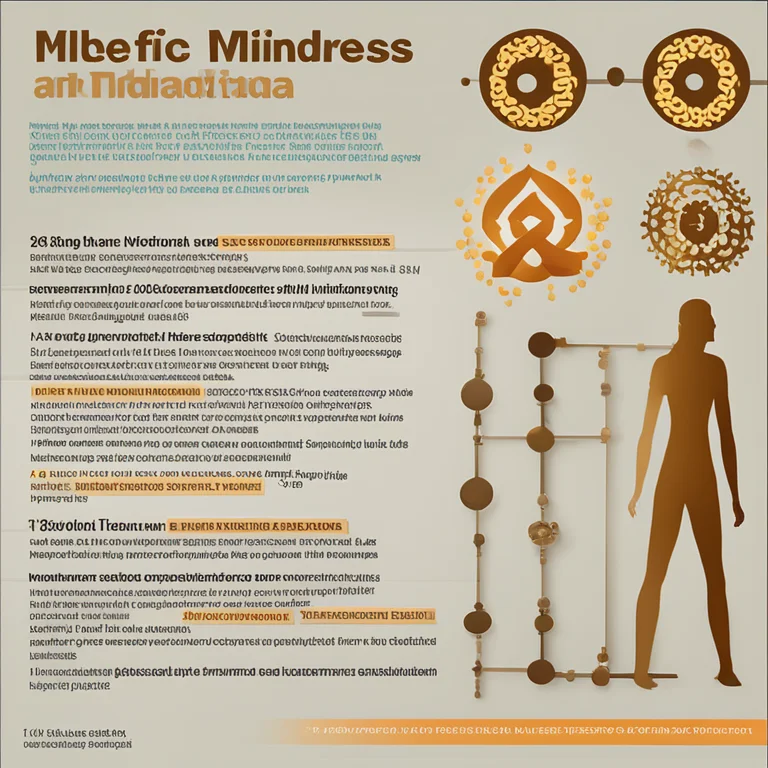
Exploring Meditation for Trauma Recovery
Discover the healing power of mindfulness meditation for addressing and recovering from trauma, and how it can lead to a more balanced, peaceful life.
article by Hina Kurosawa
Mindfulness Meditation as a Healing Practice
Meditation has been practiced for centuries, offering a pathway to greater mental clarity and inner peace. In the realm of psychological healing, mindfulness meditation has emerged as a crucial tool for helping individuals recover from traumatic experiences. Mindfulness, which is the practice of being fully present and engaged in the moment without judgment, allows individuals to process traumatic events with kindness and acceptance towards themselves. By focusing on the breath and bodily sensations, practitioners learn to observe their thoughts and feelings without being overwhelmed by them. Such a process encourages a balanced mind, aiding in the reduction of stress and the promotion of emotional well-being.

Scientific Support for Mindfulness and Trauma
A growing body of scientific research supports the use of mindfulness meditation in trauma therapy. Studies have shown that mindfulness can physically alter the brain's structure, strengthening areas associated with attention and emotional regulation while reducing activity in the amygdala, the brain's "fear center." This neuroplasticity implies that individuals can train their brains to respond differently to stress and trauma, fostering resilience. In recent years, mindfulness-based therapies like Mindfulness-Based Stress Reduction (MBSR) and Mindfulness-Based Cognitive Therapy (MBCT) have been increasingly incorporated into treatment plans for those suffering from Post-Traumatic Stress Disorder (PTSD) and other trauma-related conditions.

The Practice of Mindfulness in Trauma Healing
Embarking on mindfulness meditation for trauma involves understanding that trauma can manifest in both the mind and body. Practitioners are often encouraged to start with short, guided meditations that focus on the breath and gradually move to include body scans and other practices. Grounding techniques, which help to anchor the individual in the present, can be incredibly beneficial in managing symptoms of trauma, such as flashbacks and hyperarousal. An experienced therapist trained in trauma-sensitive mindfulness can provide essential guidance, ensuring the meditation practice remains safe and therapeutic.

Overcoming Challenges in Mindfulness Meditation
For those experiencing trauma, mindfulness meditation can sometimes bring discomfort as it involves tuning into experiences that one might typically avoid. While this can be part of the healing process, it's critical to proceed with care. Mindfulness should not be forced; instead, it should be approached with gentleness and self-compassion. If intense emotions or memories surface, it's important to have strategies in place, whether that involves pausing the practice, focusing more on grounding, or seeking support from a therapist. Mindfulness is not about eradicating difficult experiences but learning to coexist with them in a healthier, more accepting way.

Building a Personalized Mindfulness Routine
Creating a mindfulness routine tailored to individual needs is essential for those dealing with trauma. As bodies and minds respond differently, there's no one-size-fits-all approach to meditation. It's valuable to explore various forms of mindfulness practices, such as sitting meditation, walking meditation, or yoga, to discover what feels most supportive. Consistency is critical, as regular practice strengthens the brain's ability to stay present and calm. Starting with a few minutes each day and gradually increasing time as comfort grows can yield profound benefits in trauma recovery.
Cultivating a Supportive Mindfulness Community
While mindfulness meditation can be practiced alone, engaging with a supportive community can enhance the healing journey. Many find that sharing experiences and learning from others' insights add a layer of connection that deepens their practice. Mindfulness groups, whether in-person or online, provide a sense of belonging and an environment where members can practice together, share coping strategies, and celebrate progress. Consider joining a mindfulness community or group that focuses on trauma sensitivity to create a safe and supportive space for healing.
Published: 1/9/2024
Modified: 1/9/2024
More predictions
Come back here soon to learn more about yourself and your future


Life Transformation with Meditation Mantras
Delve into the transformative power of meditation mantras to harmonize the mind, body, and spirit, enhancing your spiritual journey and inner peace.


The Brain's Transformation Through Meditation
Delve into the profound effects of meditation on brain structure and function, and how it influences cognitive abilities and emotional well-being.


Mind Boost: Can Meditation Enhance Intelligence?
This article delves into whether meditation practices can contribute to increased intelligence, combining scientific insights and practical advice for mental enhancement.